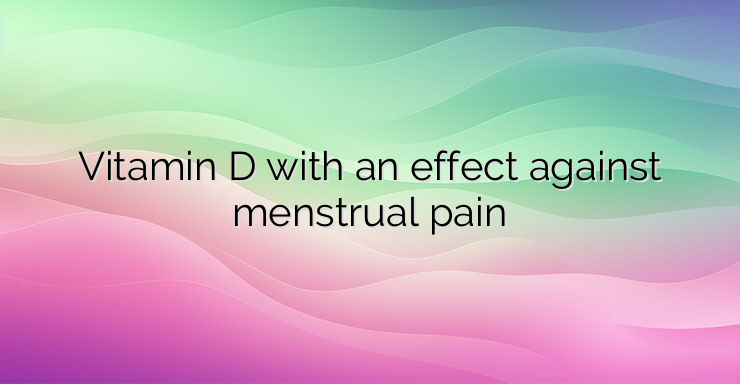In a study involving a small number of women, doctors at a gynecological hospital in Boston found that high doses of vitamin D 3 alleviated menstrual pain. This gives hope that in the future the vitamin can be used therapeutically to reduce pain complaints during the monthly cycle instead of hormonal medications that are currently used for this purpose. Menstrual cramps — Dysmenorrhea is a common problem among women of reproductive age, says Dr. Joanne Manson, MD, chief of the department at the Boston Medical Center. Usually, oral contraceptives are prescribed or painkillers are taken, available in pharmacies without a prescription, but they have side effects, which does not always make them a good therapeutic alternative, commented the specialist. Vitamin D has the ability to suppress the production of cytokines that provoke inflammatory processes in the body and prostaglandins, which are considered to be the main culprit of unpleasant cramps during menstruation. The latter also influence the occurrence of joint pain and the appearance of fibromyalgia. 40 women who were given high doses of vitamin D took part in the doctors’ research. Two months after the beginning of the therapeutic course, the women said that the pain sensations during menstruation decreased by 2-3 levels and they did not need painkillers. They rate the pain on a scale of 0 to 10. The course of treatment involved 300,000 IU injected once every two months. This amount exceeds the permissible values for vitamin intake, which is why researchers do not recommend self-administration of such treatment. An Australian study recently showed that the intake of 500,000 IU of vitamin D per year by adult women increased the risk of bone fractures. NEWS_MORE_BOX The acceptable daily dose of vitamin D is about 600 IU for women from 19 to 50 years of age, and in certain conditions it can reach 4000 IU. Higher amounts can damage the heart, blood vessels and kidneys by affecting the level of calcium in the blood. Some research suggests that vitamin D deficiency is linked to certain types of cancer, autoimmune disease, and heart disease. However, doctors remind us that with vitamins, more does not always mean more benefit. Excessive doses of beta-carotene, for example, are associated with lung cancer, vitamin E with stroke and prostate cancer. That is why vitamin D intake should not be overdone, and if necessary, the condition should be monitored by a medical professional. Regarding the therapy of pain during menstruation, amounts between 1000 and 2000 units can be prescribed, no more than for now by a doctor, following the effect and the state of the body, says Dr. Manson categorically. Normally, our skin synthesizes vitamin D when it comes into contact with sunlight. It can also be provided in high enough quantities through the consumption of fatty fish, such as salmon and tuna.


Leave a Reply